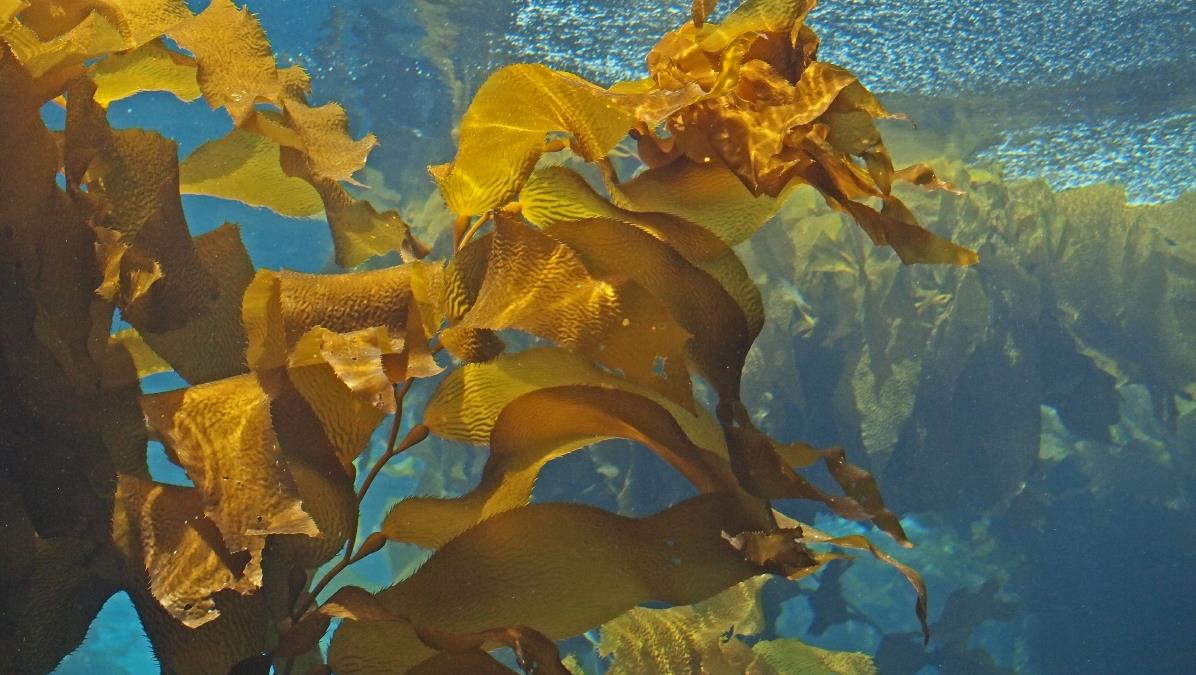

· By Shelia Morgan
Featured Horse Food Ingredient of the Month: Tasco Kelp
Across many cultures, across many centuries, our ancestors have used seaweed to feed and heal their human and animal populations.
Treated as both a critical food source and necessary medicine, this nutrient-rich ingredient was often used specifically to supplement the diets of their most prized animals.
Reported use stretches back to ancient China where assorted varieties have been used as a nutritional additive to animal feed since 600 BC. Later, in 100 BC, Greeks also followed suit including seaweed in their feeds.
The most nutrient dense version of this algae wunderkind is Kelp. When it comes to horses, its numerous health benefits have been widely cataloged. This super food boasts an impressive 11 vitamins, 16 amino acids, and 46 minerals, all of which are essential in maintaining various aspects of a horse’s overall health.
Most notably, Kelp qualifies as a prebiotic, promoting the proliferation of healthy microorganisms that reside in a horse’s GI tract. As authorities like the National Institute of Health explain, these organisms are vital since roughly 70% of a horse’s entire immune system resides in the gut.
Still, there are those that claim Kelp can lead to iodine toxicities when horses are overfed. Though as we’ll see, when supplemented in the right amounts, kelp and seaweed can deliver unique health benefits to horses.
The Animal Kingdom’s Consumption of Kelp
Initially, it was noted that sheep grazing on Kelp off Ireland’s Orkney Island coast, proved resistant against certain respiratory illness like COPD and SPAOD and scored high on a variety of overall health indicators.
Similarly, horses feeding near the ocean have been observed wading several feed inland in search of seaweed, perhaps instinctively pulled by its health-promoting nutrients.
Over time, these and other naturally occurring seaweed consumptions led to the development of seaweed and kelp feed additives.
What the Experts Say about Kelp
Legendary herbalist, author and vet, the late Juliette de Bairacli Levy, recommended seaweed nutritional supplements to her animal patients starting in the 1930s. She even wrote a book praising the natural iodine in seaweed for its ability to strengthen bones and bolster the health of pregnant and lactating mares. Though her fellow Veterinarians of the day mocked the recommendation, she ultimately got the last laugh. Today, Kelp widely accepted as an invaluable feed supplement for livestock such as horses, as well as household pets like dogs.
Hilary Page Self (A Modern Horse Herbal) says that kelp is “used extensively for underactive thyroid, and as an excellent source of minerals for the body and used externally for compresses to reduce inflammation and arthritic pain.”
What’s the Deal with Iodine?
The biggest point of contention among critics and proponents of Kelp lies in one trace element: Iodine. Though it’s key in nutrition, too much build up in the system can result in toxic overdoes.
According to, TheHorse.com, the average horse requires about 2mg of Iodine per day with toxicity occurring at 40mg/day.
What iodine opponents often fail to note is the pronounced effect upon the thyroid gland. It’s integral to endocrine function, especially that of the thyroid, because it helps regulate the secretion of thyroxine. Not only is it a key driver of metabolism, it is also important for an array of mental health factors.
The iodine naturally found in Kelp also negates the need for other iodine sources and supplementation such as iodized salt.
Health Benefits of Kelp
Some of the primary health benefits horses gain from supplementing their diets with Kelp include:
• Access to bio-available minerals that may be missing in current forages
• Healthy gastro intestinal function
• Easy digestion of soluble fibers
• Improved coat quality
• Bolstered immune system
• Marked anti-aging
Kelp is:
• anti-inflammatory
• demulcent
• emollient
• protective against radiation
• anti-cancer + anti-tumour,
• antibiotic + anti-viral
• immuno-stimulant
• soothing to intestinal mucosa
• natural source of iodine
Kelp isn’t:
• A toxicant form of iodine when used with care
• Safe if grown in polluted water (it take on harmful levels of heavy metal and other contaminants)
Why Should You Feed Kelp to Your Horse?
As HealthyHorses.co explains,
Modern intensive farming practices have resulted in soils with deficiencies that are reflected in the low nutritional content of grasses and grans grown on these soils, and in the health of the animals raised and maintained on these crops. Lush and otherwise nutritious grasses may fail to supply the needs of your horses because certain trace elements are missing. Horses have finely balanced needs for trace elements: too little produces deficiency symptoms, too much may be toxic.
Ultimately, iodine concerns aside, Kelp is of undeniable benefit to a horse’s overall health. It alone has some of the highest trace-mineral content of any single source and a seemingly endless list of health benefits. It gets a gold star on our roster of nutrient dense ingredients, and we are please to share it in hopes of helping your horse reach his prime level of performance, in the healthiest way possible.
